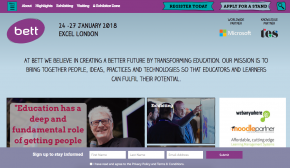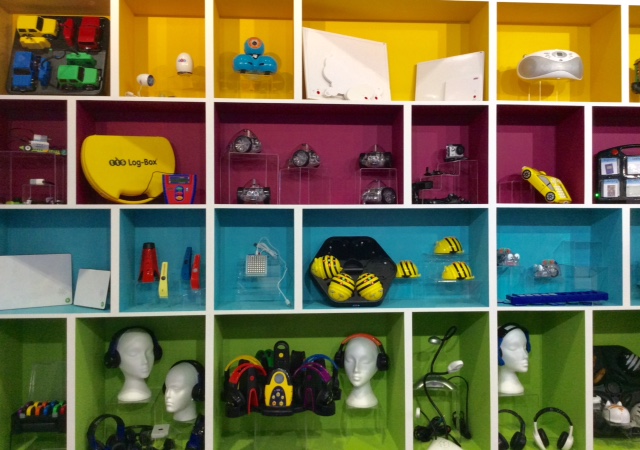Le BETT, salon mondial du numérique en éducation, se tient chaque année à Londres. Notre collaboratrice partage aujourd’hui les tendances qu’elle y a observées.
Le BETT (British Educational Training and Technology Show), salon mondial du numérique pour l’éducation, s’est tenu à Londres du 25 au 28 janvier dernier. Cette manifestation a réuni en quatre jours plus de 800 exposants, 528 conférenciers, quantité d’ateliers et 34 500 visiteurs venus de 138 pays!

Depuis 1985, le BETT se donne comme mission de rassembler gens, idées, façons de faire et technologies en un même lieu. Créer un monde meilleur en transformant l’éducation, tel est son objectif. L’événement couvre cinq secteurs : petite enfance et primaire, secondaire, éducation continue, élèves à besoins particuliers ainsi que formation et apprentissage sur le lieu de travail.
Le BETT est à la fois une gigantesque foire du numérique éducatif et un intéressant colloque. Tout au long des quatre jours, tables rondes, ateliers « hands-on » (main sur les touches) et conférences se déroulent conjointement.
Au BETT Arena, situé au centre du salon, sont présentées les conférences des « vedettes internationales » ainsi que les débats sur les sujets chauds de l’heure.
D’autres petits espaces s’adressent à des clientèles spécifiques :
- L’International VIP Lounge, où l’on présente les caractéristiques de l’éducation numérique de différents pays;
- Le pavillon de la France, inauguré par Mme Axelle Lemaire, secrétaire d’état chargée du numérique et de l’innovation;
- Les secteurs Learn Live, où sont offerts divers ateliers pratiques à l’intention des enseignants du primaire, du secondaire, de l’éducation continue et de l’éducation spécialisée;
- les regroupements d’intérêt tels Microsoft Partner Village, HE@BETT (pour les responsables de l’enseignement supérieur), le centre de conférence pour les chefs d’établissements. le STEAM Village ou l’espace BETT Futures (le coin des startups).
Les grandes tendances de l’édition 2017 du BETT

Au BETT 2017, les thèmes de l’heure pour les classes du primaire étaient orientés vers la sécurité des élèves en ligne et à l’école, les relations entre les parents et l’école, les projets de classe internationaux ainsi que les concepts et les méthodes de programmation.
Quant au secondaire, les principaux intérêts semblaient être l’impact des réseaux sociaux sur le dialogue entre les parents, les enseignants et la direction de l’école, les jeux sérieux comme support à l’apprentissage, les portfolios numériques et le travail collaboratif.
L’initiation à la programmation de la maternelle à l’enseignement supérieur, la réalité virtuelle, augmentée ou mixte pour renouveler la pédagogie et des applications pour faciliter la différenciation de l’apprentissage semblent être les tendances du moment.
Pour en savoir plus, consultez aussi le tour d’horizon en images de Jennifer Elbaz dans Educavox, BETT 2017 : mais encore?
Demain, je vous partage quelques découvertes que j’ai pu faire sur place.




 Recevez l'Info #DevProf et l'Hebdo pour ne rien manquer des nouveautés de l'École branchée!
Recevez l'Info #DevProf et l'Hebdo pour ne rien manquer des nouveautés de l'École branchée!




